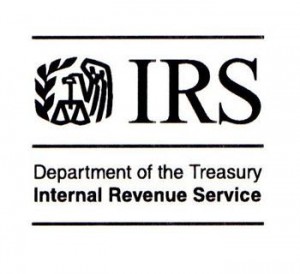 The recently passed tax bill imposes a 21% excise tax on excess compensation and excess severance benefits of certain executives of nonprofit and governmental employers. The provision has a substantial impact on the compensation and benefits that such organizations can provide for their executives. Moreover, the determination of which employers, and which executives, are covered includes several traps for the unwary.
The recently passed tax bill imposes a 21% excise tax on excess compensation and excess severance benefits of certain executives of nonprofit and governmental employers. The provision has a substantial impact on the compensation and benefits that such organizations can provide for their executives. Moreover, the determination of which employers, and which executives, are covered includes several traps for the unwary.
Tag Archives: unions
Nonprofits and Governments Face Compensation and Benefits Issues under the New Tax Law
IRS determination letters after 2016; what are the options?
(Posted on July 28, 2015 by Carol V. Calhoun)
 As previously discussed, faced with substantial budget cuts, the Internal Revenue Service (“IRS”) has announced that it is eliminating most determination letters (letters concerning the qualified status of retirement plans, which gives rise to numerous tax benefits), effective December 31, 2016. (Announcement 2015-19.) In the past, individually designed retirement plans were able to obtain a determination letter once every five years, during a cycle provided by the IRS. The most likely new regime will involve making determination letters on individually designed plans available only when a plan is first adopted, or when it is terminated. Between those dates, the only way to ensure qualification other than filing a declaratory judgment action with the Tax Court is likely to be to adopt annual updates put out by the IRS that will include model wording for amendments.
As previously discussed, faced with substantial budget cuts, the Internal Revenue Service (“IRS”) has announced that it is eliminating most determination letters (letters concerning the qualified status of retirement plans, which gives rise to numerous tax benefits), effective December 31, 2016. (Announcement 2015-19.) In the past, individually designed retirement plans were able to obtain a determination letter once every five years, during a cycle provided by the IRS. The most likely new regime will involve making determination letters on individually designed plans available only when a plan is first adopted, or when it is terminated. Between those dates, the only way to ensure qualification other than filing a declaratory judgment action with the Tax Court is likely to be to adopt annual updates put out by the IRS that will include model wording for amendments.
For entities that maintain a retirement plan, the new regime may mean that they discover qualification issues only on audit, when it is too late to fix the issue. And the potential penalties on audit (for the employer, the trust under the plan, and the employees) are, as set forth in a prior article, huge. What steps should a plan administrator take to ensure the qualification of a plan after that point? Read more.
Governmental Plan Determination Letters: Last Chance?
(Posted on July 21, 2015 by Carol V. Calhoun)
 On July 21, 2015, the Internal Revenue Service (“IRS”) issued Announcement 2015-19, in which it announced that it would be making substantial changes to the determination letter program intended to allow retirement plan sponsors to ensure that their plans are qualified (eligible for tax benefits). This announcement will affect all retirement plans intended to be qualified, but will create particular issues for plans maintained by governmental employers (“governmental plans”). Read more.
On July 21, 2015, the Internal Revenue Service (“IRS”) issued Announcement 2015-19, in which it announced that it would be making substantial changes to the determination letter program intended to allow retirement plan sponsors to ensure that their plans are qualified (eligible for tax benefits). This announcement will affect all retirement plans intended to be qualified, but will create particular issues for plans maintained by governmental employers (“governmental plans”). Read more.
Federal District Court Blocks Michigan Law Eliminating Health Benefits for Domestic Partners of Public Employees
(Posted on July 4, 2013 by Carol V. Calhoun)
 Michigan Public Act 297 (“Act”) prohibits public employers from providing medical and other fringe benefits to any person cohabitating with a public employee unless that person is legally married to the employee, or is a legal dependent, or eligible to inherit under the State’s intestacy laws. In a June 28 decision, U.S. District Judge David Lawson (E.D. Mich.) has issued a preliminary injunction blocking enforcement of the Act based on a finding that the plaintiffs (same-sex couples of which one works for a Michigan local government) “have stated a viable claim based on the Equal Protection Clause on which they are likely to succeed.”
Michigan Public Act 297 (“Act”) prohibits public employers from providing medical and other fringe benefits to any person cohabitating with a public employee unless that person is legally married to the employee, or is a legal dependent, or eligible to inherit under the State’s intestacy laws. In a June 28 decision, U.S. District Judge David Lawson (E.D. Mich.) has issued a preliminary injunction blocking enforcement of the Act based on a finding that the plaintiffs (same-sex couples of which one works for a Michigan local government) “have stated a viable claim based on the Equal Protection Clause on which they are likely to succeed.”
Speech outline, “Key Legislative and Tax Changes That Impact The Performance Of Your Fund,” now available
(Posted on October 5, 2004 by Carol V. Calhoun)
You can click here to see a copy of the outline for the presentation, given at the 12th Annual Guns & Hoses, the Annual Reunion of the Nation’s Police & Fire Pension Fund Leaders and Their Advisors, on October 5, 2004. Read more
Speech outline, “Governmental Plans Update,” now available
(Posted on September 9, 2004 by Carol V. Calhoun)
You can click here to see a copy of the outline for the presentation, given at the Eighteenth Annual Advanced ALI-ABA Course of Study: Retirement, Deferred Compensation, and Welfare Plans of Tax-Exempt and Governmental Employers, on September 9, 2004. Read more
